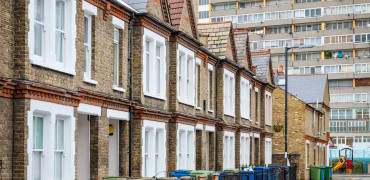Boris Johnson’s government has rejected calls from senior politicians throughout the UK to keep the £20-per-week universal credit uplift in place.
The temporary increase in Universal Credit was introduced last year amid the COVID-19 pandemic and extended in March - but it is due to be scrapped in early October.
Therese Coffey, the work and pensions secretary, informed cross-party committees that the cut will go ahead as scheduled next month, costing millions of Britons £1,040 a year.
“Now the economy has reopened it is right that the government should focus on supporting people back into work and supporting those already employed to progress in their careers,” Ms Coffey replied in a joint letter to ministers.
The work and pensions secretary added “Our ambition is to support 2 million people to move into and progress in work through our comprehensive £33bn Plan for Jobs.”
The Universal Credit cut, according to the Joseph Rowntree Foundation, will push 500,000 people into poverty, while Citizens Advice has warned that a third of those receiving the benefit will be forced into debt when the uplift is eliminated.
With summer coming to an end and fuel poverty on the rise, this news couldn’t have come at a worse time.
Heat pumps offer a ‘win-win’ in the battle against fuel poverty
Fuel poverty
Simply put, fuel poverty is defined as "the inability to afford to keep one's home appropriately warm."
There are around 4.5 million fuel poor homes in the UK today, according to the ‘End Fuel Poverty Coalition.' An additional 21 million houses in the UK have energy efficiency ratings of B or C on an Energy Performance Certificate.
A fuel poor household is one that spends more than 10% of its income on all fuel use and heats its home to a comfortable temperature (21°C in the living room and 18°C in other occupied rooms).
According to a recent study by University College London (UCL), 9,000 people died in England and Wales last winter as a result of living in a cold home, the greatest figure in 15 years.
In an interview with the BBC show Panorama, Dr Jessica Allen, whose team conducted the study, said “This was not the coldest winter on record. People dying from cold homes are a result of high fuel prices, low incomes and poor insulation. It's entirely preventable.”
How can we tackle it?
The only long-term solution to reducing fuel poverty is to establish a properly funded programme that insulates all afflicted homes and oversees the installation of an efficient heating system. This would require a huge expenditure - around £1.7 billion per year for the next 15 years.
Although this sum may seem astronomical, please consider for a moment that the NHS is burdened with £1.36 billion in annual costs as a direct result of the health implications afflicted upon those living in fuel poverty.
It's also a known cause of the 25,000 extra winter fatalities in England and Wales each year. As the population ages and pensions dwindle, so will the health risks and costs associated with it.
The financial repercussions of fuel poverty actually extend far beyond just that of the affected tenants household, into society as a whole - from avoidable winter burden on the NHS to increased sick days at school and work.
Fuel poverty puts enormous pressure on hospitals and doctors surgeries across the country.
This is not only because of the physical and mental impact of living in a cold home, but also because it can actually extend the period of time a vulnerable patient is kept in hospital, with some actually not being discharged until their home is renovated to habitable state once again.
In summary
The Universal Credit cut is going to impact a lot of tenant’s lives this winter. We, as social and affordable housing association professionals need to ensure we do everything in our power to help.
Air source heat pumps, for example, can immediately help alleviate fuel poverty. By extracting renewable energy from outdoor air, the system maximises the energy provided to the household and can offer a reduction in run costs; studies suggest by up to as much as 10% of the UK national average.
It’s a win win; in addition to helping the tenant reduce their heating bills, the renewable heat from the heat pump can qualify for quarterly RHI payments for the landlord, which offsets the cost of the heat pump installation initially and then provides funds for further upgrades to property and heating, such as improving insulation, air tightness or efficiency in other areas going forward.
Let’s keep warm this winter.
Joe Bradbury is digital editor of HA magazine



